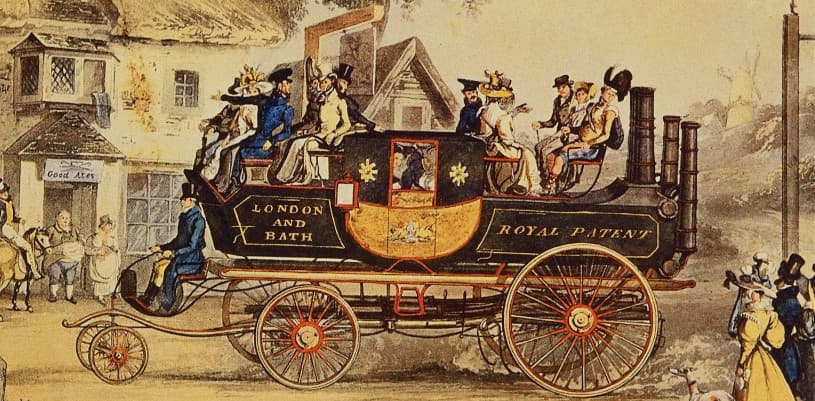Eamonn Fingleton, in The American Conservative, recently wrote a piece “The Confucian Model” about East Asian economies, the analysis in which I thought made sense. However, I disagreed with his conclusion, that, now that this “Confucian” model has been invented, authoritarian societies have a built-in economic advantage over democracies. To me, the benefits of “Confucianism” can be attained without much difficulty in democracies, provided only we have governments that adopt the right policies. Of course, that is the tough part! Continue reading
The Bear’s Lair: Coal – wonder-fuel of the future!
In November and December 2021, China’s coal consumption rose to record levels, well over half the world’s total. That enabled China to record a 8.1% growth rate in 2021, by far the highest of any major economy. It also coincided with the COP-26 climate change conference, in which Western governments unanimously promised to sacrifice the living standards of their people on the altar of Greta Thunberg’s whims. The moral is clear: coal, rather than greenie hot air, is the way to improve people’s living standards – as it always has been. Continue reading
The Bear’s Lair: De-financializing the global economy
Since 1980, the global economy has become increasingly financialized – by all measures, the ratio of debt to GDP has steadily increased. If something cannot go on forever, it will reverse, and there are two ways in which this might do so. One way is the global kumbaya of a debt jubilee, which would collapse human civilization. The other much better way is a de-financialization, such as we have suffered twice before – a painful but necessary return to sound finance and paying cash. As an optimist, I believe this economic root-canal procedure is in our future. Continue reading
The Bear’s Lair: Canals, not steam catalyzed the Industrial Revolution

Source: Æthelred
The Industrial Revolution is traditionally held to have begun in the middle 1780s with James Watt’s invention of the rotary steam engine with condenser attached. (The condenser alone did not allow Watt’s engine to power machinery, since it still used the jerky Newcomen “beam” motion.) Yet there was another innovation, almost 20 years earlier, which had more short-term importance to industrialization and was the real spark to its take-off: James Brindley’s “Grand Cross” system of canals. Continue reading
The Bear’s Lair: Public opinion’s leftward ratchet
In 1970, Venezuela was a little richer than Chile — $1,014 nominal dollars per capita versus $933! on World Bank figures. Both were corrupt social democrat countries with poor management and bloated government. Fifty years later in 2020, Venezuela, which continued and worsened its socialism, had a GDP per capita of only $1,691 nominal dollars while Chile, which after the 1973 coup took a free-market approach, had soared to a GDP per capita of $12,990. Yet Chile just voted to reverse its policies and follow Venezuela’s. Why? Continue reading
The Bear’s Lair: Regulators — killing new industries since 1831!
This column has not written enough about the economic damage done by excessive regulation, partly because most of that damage takes the form of new businesses snuffed out. Something that has been eliminated from existence is by definition difficult to write about. However, in my Industrial Revolution researches I have found an example of regulation from 1831 that without question eliminated an entire industry – or at least, postponed it by 70 years. It is an excellent example of the immense economic and social damage, hidden in most cases, that government regulation generally brings. Continue reading
The Bear’s Lair: The first retrograde century since the 14th
Judging by its first 21 years and the prospects therefrom, there is a good sporting chance that the 21st century will be a grim one for most people. Since at least mediaeval times, each century has been an improvement on the previous one, for ordinary people living through it. Incomes have risen, technology has made lives easier, endemic violence both small-scale and large-scale has declined in frequency. The 21st century may be the first since the 14th that reverses this trend. Continue reading
The Bear’s Lair: A property franchise makes sense
This column is increasingly convinced that economic policy peaked in quality some 200 years ago, to give us the Industrial Revolution. Contrary to Whig historians’ fantasy, the government that produced that policy was elected on a relatively broad franchise, of property-holders possessing a “40-shilling freehold” – a fairly low requirement. While returning to such a franchise is outside today’s practical politics, one can imagine it becoming a possibility, perhaps after a crisis. It is therefore worth looking at why it is desirable and how it could work. Continue reading
The Bear’s Lair: Socialism wrecked the BRICs
As the celebratory editorials note, it is now 20 years since Goldman Sachs’ Jim O’Neill propounded the concept of the BRICs (Brazil, Russia, India and China) and proclaimed that the four emerging market economies would outgrow massively the major Western states and become a dominant factor in the world economy. The idea was naively optimistic, a product of the globalist 1990s when to those of O’Neill’s persuasion the world seemed to have settled into a unitedly social democrat future. That was the problem – the elements of socialism in the BRICs’ economies and in the world as a whole substantially damaged the BRICs’ prospects – and ours also. Continue reading
The Bear’s Lair: Financial engineering fuels U.S. weakness
The sale to a Chinese company in 2016 of one of the world’s largest cobalt sources, controlled by a U.S. company Freeport McMoran (NYSE:FCX), is emblematic of U.S. national weakness, “wokeness” and decline. However, one underlying cause of that sale was the blizzard of stock buybacks and unsound acquisitions made by FCX in the years preceding its hurried liquidity-seeking selloff. The ability of corporate management to play games with the balance sheet to maximize its own rewards is a major source of U.S. competitive weakness and should be eliminated. Continue reading
